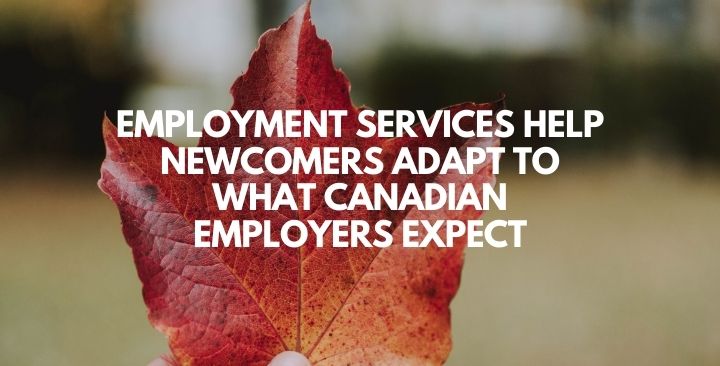Although Canada still helps immigration as a priority to help the economy overcome coronavirus, barriers between newcomers, and job opportunities remain.
New migrants entering the job market may face credible identity issues. Language or cultural barriers may affect newcomers’ trust or their ability to communicate with their employers and colleagues. They may also face discrimination.
“Despite the need for new Canadians, there are still some employers who have little bias towards Canadian-born [workers],” said Tim Lang, president, and CEO of Toronto’s Youth Employment Services.
YES is one of several employment centers in Toronto that help unemployed and unemployed immigrants find jobs in their area. They work with thousands of employers across the city to help them understand the benefits of hiring immigrants.
“New Canadians bring a whole set of new experiences and new ideas that can benefit [a] company,” Lang told CIC News. “And although they are learning English or learning French [newcomers] can overcome those minor hurdles and very productive producers are long-lasting employees who help the company grow.”
Most Canadians already see, during the epidemic, the benefits of immigration. Immigrant workers fill the gaps in the market and are a major source of population growth in Canada. Therefore, immigrants must have equal access to jobs to ensure their long-term success, and in turn, Canada’s long-term success.
The Ontario Human Rights Council recognized this in 2013 and enacted a policy on removing the “Canadian experience” barrier, which outlines human rights issues ranging from unequal access to job opportunities based on foreign experience. It also provides a list of best practices for employers.
In terms of what immigrants can do to improve their job-search results, Lang says that the first step is to “adapt to the expectations one expects.”
So, what do employers expect in Canada?
Make a Canadian style resume
The Canadian government webpage outlines the complete “do’s and don’ts” of resume writing. Collapsing: Keep resumes clear and concise. Make sure there are no spelling errors and limit the page count to two pages. Determine achievements using firm numbers perceived by the employer. Write in the third person, so do not use “I,” “my,” or “me”.
Include basic contact information such as an email or phone number, but never attach a photo, or personal details such as age, marital status, or religious belief. Never include a social insurance number on the CV, as it should be reserved after the job is secured.
And lastly- be honest. Never lie on a resume.
Prepare to address credential recognition in interviews
Employers want to understand the education level of job applicants with terms they are familiar with.
If obtaining a Canadian education during their job-search is not an option, immigrants coming with a foreign education may receive a reliable assessment. They can then use employers to show Canadian results equivalent to degrees, diplomas, or certificates obtained abroad. Some immigrants have already completed an educational credential evaluation as a requirement of their immigration program.
These are just some of the common ideas to help immigrants get started for jobs. For more information on getting a job in Toronto, Lang says that foreigners abroad can take advantage of YES’s free online workshops to offer job interviews and resume to others, however, job placement To help, immigrants need to live in Toronto.
